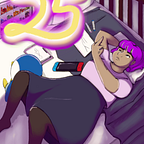Family of Lupus (1)
The stories and experiences of my family and mother who lives with this currently incurable disease.
My family deals with a disease called Lupus. I capitalize it because if I don’t I lose it on the page. That’s how easily it slips by.
What is Lupus? It’s an autoimmune disease where your white blood cells confuse healthy tissue for viruses and send antibodies to fight them. There are two types (that I know of) being, Skin, and Systemic.
My mom has Systemic Lupus. This means that it will go anywhere in her body, usually focusing on vital organs, and attack them on a flare-up. She has almost died from complications of Lupus 3 times. Once when I was born, once when I was 16 (as a result of my sister being born a few years before), and once a few years ago after her best friend, and my grandfather died a couple months apart.
There have been a few studies done on what causes Lupus, who it’s common among, and how long the usual lifespan is. It’s common disproportionately in women of color, and once it’s diagnosed, you’re usually given around 14–15 years to live. They say it’s not hereditary because they can’t find the gene it’s tied to. What I know, is that it has been passed down in my family for generations. I have a positive Lupus panel, with my Lupus being inactive, my sister is the same, and one of my cousins died from it when she was 19. My late cousin’s sister was diagnosed with the skin version, and then it vanished and never came back, and her other sister currently has a positive panel with it being inactive.
Lupus flare-ups look like you’re going through withdrawal from some heavy drug. Shaking, sweating, incoherent speech, heavy eyelids. What the doctors don’t see though, is the amount of pain you’re going through. Your whole body is shaking uncontrollably, and once these flares have happened enough times, you learn when they’re going to happen.
What the doctors do see, is a “frequent flier” or “drug seeker.” They treat you like you’re just in the ER for some drugs to hold you over. They put you as low on that priority list as possible. It’s a horrible situation to be in, and is just as bad for your kids because from an early age, we have to learn to communicate with the doctors and let them know you’re not an addict, that this happens sometimes and we have to tell them exactly what medications you’re on, and how often you’re taking immunosuppressants.
Lupus patients without an advocate, die in the hospital. They die suffering, sedated, and alone.
The doctors might give you enough medication to sedate you and get you to shut up. Why? Because you’re in so much pain that you are writhing and moaning loud enough for anyone outside to hear. If you don’t see what’s wrong with that level of sedation, then let me explain. If you’re too sedated, to the point where all you’re doing is sleeping or barely awake. You aren’t able to talk. You aren’t able to speak to your pain or tell the doctor that you need to call your kids. My mom lies about being allergic to certain medications because they’re sedatives. We only ask for enough pain medication to get her back to baseline so she can speak and tell the doctor what was happening to her. Some doctors are so dismissive though, they would rather sedate her than give her an opioid to actually manage her pain without sedation. My mom has lived way past the 15-year expectation because of the small moments in time where she needed morphine for like, 3 months, and then she would get off of it asap. Now she’s been on it for over a year and is titrating down, but it’s hard. No pain management doctor will prescribe her what she needs to let her be at the same level as any other 50-year-old mother. She has to choose between whether or not she does her hair and makeup, or if she showers that day. Or if she cooks a meal, or goes for a walk. If she washes the dishes or mops the floor.
Think of how much a mother has to do in a DAY. Then imagine what it would be like, if the next week, all she could physically handle, was one of the 20 things she did last week, over the course of 2 days. Shower on Monday, mop the floor on Tuesday, take a walk on Wednesday, and then rest on Thursday because you walked a whole block instead of just to the corner like you promised. There is anxiety and depression that tell you that you should just give up. Just let go, accept the deterioration of your body because it will never fully recover. You’ll never be able to spend a whole day at Disneyland. No 3-hour hikes. You can barely handle going to TJ Maxx for 30 minutes. People take for granted what they can do. What they should be able to do.
My mom doesn’t have that luxury.
